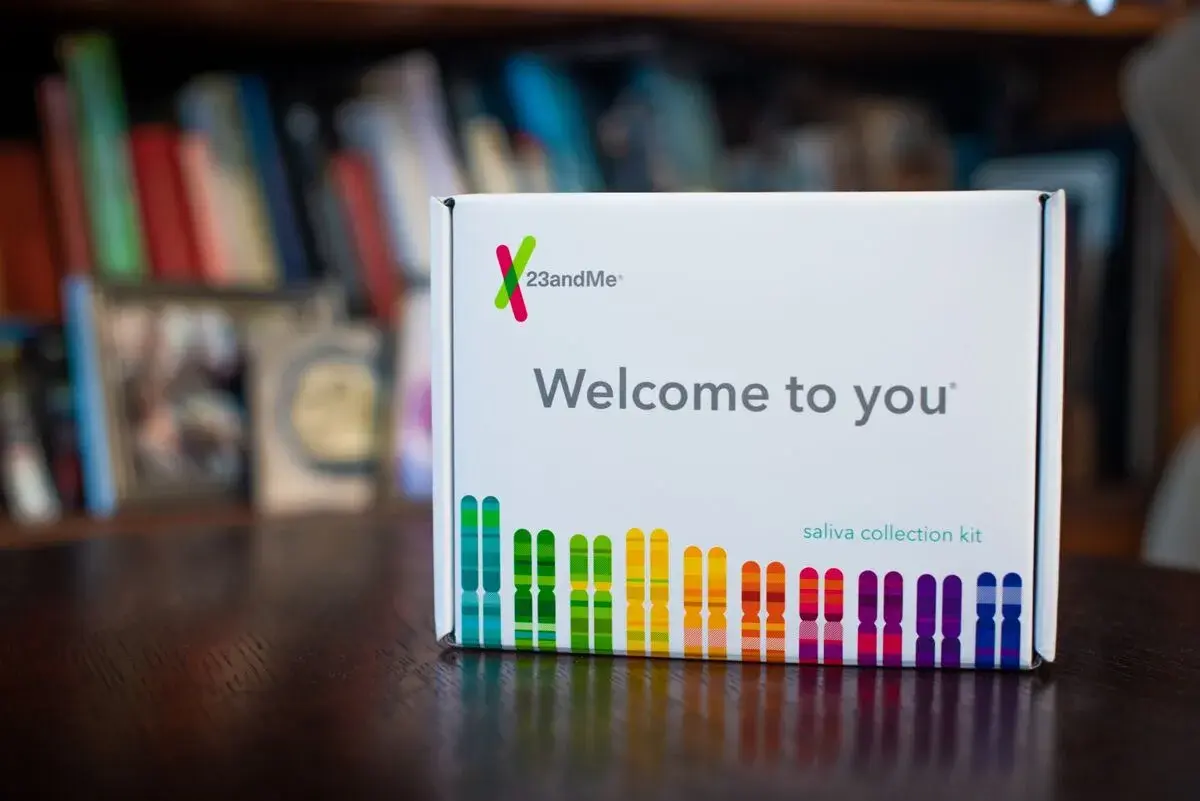- cross-posted to:
- linustechtips@lemmit.online
- cross-posted to:
- linustechtips@lemmit.online
H-h-how? HOW? do they ‘anonymize’ DNA?!?! Remember how in 2007 ‘anonymized’ netflix data was linked back to actual members? That was just checking what people watched on Netflix compared to what they rated on IMDB.
With DNA, you should be able to figure out who someone is by the fact you an exact DNA record! I mean, it’ll share similarities with your parents, and children, and to a lesser degree, more removed relatives. How hard can it be to figure out that this woman is related to that guy with an arrest record. Or more specifically: this is the exact person because we see other records from any doctor or whatever with the same DNA.
This was an obvious outcome when they were going to IPO. When it was announced they were going public, I exported all of my data and had all of my records with them destroyed.
Then I made a little bit of money on their stock and got out of that too.
As a general rule, when someone says that data is anonymized, they’re one part lying and one part clueless. It sounds great when they say it, but ultimately it’s bullshit. Maybe if we started calling claims like this lies when they were made, a few more people would pay attention.
Anonymized as in they deleted the “name” field.
What, you don’t think that’s enough? /s
That’s basically what it usually is: anonymized so that to discover people’s identities you’d need to combine the data set with at least one other readily available data set.
H-h-how? HOW? do they ‘anonymize’ DNA?!?!
If you really curious, it is possible depending on the sections of the DNA being shared and how aggregated they are. Not saying that this will be the case - it’s quite likely that this sale would be done prioritizing value instead of privacy - but it is possible. The key part is to not treat the whole DNA as a data sample, but specific sequence sections, as isolated as possible.
And the Netflix example is instructive but not super relevant here. If you already have your SNPs in a public database out there, then yeah 23andMe might not be able to effectively anonymize your samples; but you don’t (I hope).
All prisoners in the US, regardless of infraction, have DNA samples taken in many states.
That is not voluntary.
It was ruled constitutional by SCOTUS.
If you had that done, and you have family dumb enough to use 23andme, then you just got screwed, involuntarily, twice.
A vast majority of those millions are going to be for the identity rather than just the relevant data. Meanwhile, the genetic profiling companies, drug companies and insurance companies are sociopathic enough to lie through their noses about it.
I have a strong feeling that the data transfer has already happened through data brokers. They are just easing the public into acceptance.
all they ever wanted was a database to sell. we keep falling for the same game…
When we said that data was the new oil in the 80’s, nobody listened.
They still haven’t listened, but if you own stock in those companies at least it’s profitable.
abso fkn lutely. information is the oil of the 21st century.
Hey, at least it’s a renewable source.
I tried telling my family this from the jump but half of them have used these services. Now me and all their descendants are fucked over because they just had to be idiots. It’s extra stupid because we already have our genealogy on both sides going back to like 1500s.
I made the mistake of having them sequence my DNA before the first Big Pharma deal with GSK, which took a lot of people by surprise. I’ve since made a point of feeding them as much disinformation as possible every time I’m on their site.
Be quite amusing if we could poison their well by persuading a great many people to send in samples from other life forms.
Probably easier, cheaper & faster to make their data unusable via other means though.
It is fairly easy to differenciate DNA samples from different species and exclude them. Since it has always been an issue to have contamination by foreign DNA (bacterias, fungus, virus, plancton, fauna and flora of all sorts, etc.), tools/methods/protocols are specifically made to quickly separate out (amplify the DNA we are interested in) from whatever is not to focus of the current study.
Moreover, a random anonymous sample without associated information can quickly be analysed and compared against large libraries of genome datasets/maps to ascertain and corroborate what it is from, closest species, even family trees of related inviduals and most importantly get an overview of multiple phenotype of interest.
From the day the full human genome map had been declared complete in 2003 (at 85% of the genome), research has only accelerated in improving the map while understanding the various functions of many different parts of our DNA.
So you’re saying we need to edit our DNA before sending it in!
CRISPR to the rescue!
That was one of the first things they put in place when they started accepting samples from people: Detect and filter out every sample of non-human DNA to keep people from messing with their data set.
I am guessing this is only for the people who opted in to having their data shared for research.
That remains to be seen. I wouldn’t bet the farm on it.
Exactly. I now trust them approximately as far as I can throw a bull.
That’s still too far.
LOL! Agreed
It is exactly that.
Perhaps. “Research” was initially pitched as academic and non-profit research, which I was happy to help. Then selling my data to a for-profit with no warning was definitely Not Cool.
Almost all research is done by companies. New advances in science cost money, they need funding. Some of this funding comes from charities, but the majority comes from companies that hope to benefit in some way.
Oh man i cant wait to say i told you so to family members
I’m waiting for the part where the US insurance companies are discovered using that data en mass to increase premiums and deny coverage.
That’s going to be my “I told you so”.
That will take a long time, right now analyzing one person’s DNA to a point where an insurance company could profit from it costs way more than the extra profits from denying some potentially short-lived clients.
(or an AI based analyzer is already in the works)
Considering prior authorization is predicated on the fact that if they reject enough requests inevitably some people won’t fight them, meaning they don’t have to pay out, I wouldn’t be surprised if they use a slightly better than chance prediction as justification for denying coverage, if they even need an actual excuse to begin with.
I’m old enough that a lot of things that were going to take a long time have come to pass, so I feel confident this will come.
AI and genetics are both moving fairly fast, and insurance is about numbers and probabilities.
Don’t expect much lol, when I pointed out that this was inevitable the most common response was “who cares?”
Privacy is dead mainly because your average person doesn’t actually care about it
Privacy is dead because of the average person. They were informed several times, but they decided it wasn’t important. And they ruined it for everyone else who cared.
Were they of the idea that when you tick the “my data can be used anonymously for research” box it meant that their data WOULDN’T be used anonymously for research?
The only way I’m ever getting sequenced is if the machine is in front of me, is an open-source design or can be destroyed afterwards, and I get the only copy on my own encrypted drive. Or it’s done without my consent. Probably the latter the way things are going.
Only way I’m doing it is if I assembled the machine from a kit and got to inspect the source code myself.
Do you realize that you don’t need to volunteer at all? Do you know that there was a rape and murder case that was proven using data from a similar (same?) company? They found a bunch of people with DNA similar to that from the rape kit and went on to find their common relative.
The story above may sound good. But it won’t be too hard for medical insurance companies to deduce your approximate genetic profile based on the samples submitted by your relatives.
Even worse, it doesn’t take a lot of genetic material these days to profile you. The PCR technique (the same used for Covid-19 screening) can amplify samples. You may have submitted a blood sample at some point in the last few years. How would you know if a tiny bit of that was siphoned off to create an exact genetic profile of yours?
Different company. There’s a site called Gedmatch where you can upload your file and one of the feature you can choose to use is to allow your file be used to identify does or solve serious crimes. Nobody is doing this secretly.
Yeah. That’s kind of what I was getting at with the “without my consent” part.
People are getting very confused here. You can allow your anonymised data to be used for research. This is not new whatsoever and it’s done by consent.
What IS new is that a company (GSK) are about to start using this data. Data that’s publicly used already. This may help them to develop some new treatments.
No no, just repeat after me: “I can say I tOlD YoU So!” You don’t want to be caught using anything resembling logic when it comes to pharmaceutical companies.
God no, only paranoia and doom allowed.
I won that bet.
This is only if you opted into research. And I am actually happy this is happening. If only one person is helped by research outcomes or medications developed from this, I am happy. I don’t care if 23andMe gets rich from it or not.









